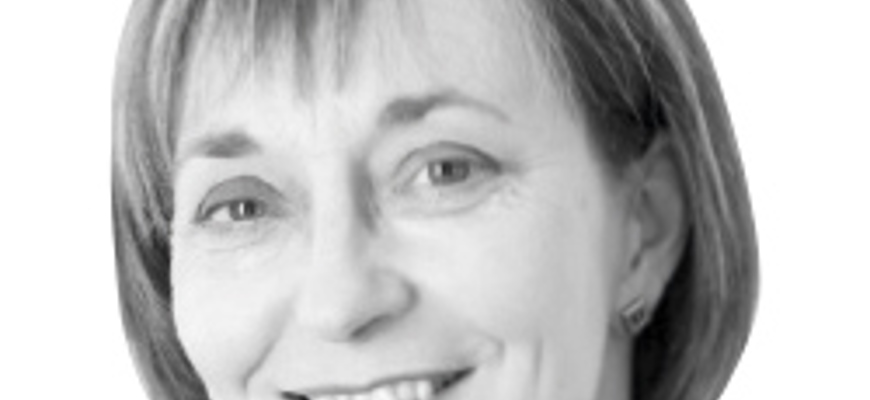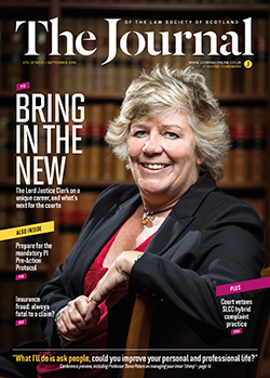Losing our judgment?

Can a lawyer’s professional judgment be replicated using artificial intelligence? Earlier this summer, Radio 4’s Law in Action discussed research being carried out by the University of Liverpool’s Department of Computer Science to determine a method of designing and implementing programs intended to decide cases by applying the relevant body of case law. In particular, it considered 32 US appellate cases, in which the computer predicted the judges’ decision in 31 of them.
As lawyers, we will be reassured that this appears to confirm that judicial decision-making at appellate level is based on an objective assessment of the relevant law as researched and presented by experienced lawyers. However, we are also aware that the weighing of evidence is an “art” rather than a “science”, particularly when it comes to credibility and context.
In “Cultivating judgment” (Journal, October 2015, 18) I argued that, while the commoditisation of legal services is reducing the amount of low-risk work through which trainees can develop the core skills of lawyering, clients continue to need their solicitors to provide cost-effective solutions to complex legal problems by exercising their professional judgment.
Interestingly, many experts (quoted in the online version of this article) agree that the exercise of professional judgment involves a complex blend of technical expertise and empathic understanding, in applying specialist knowledge and ethical codes in the context of the particular situation of individual clients. Its complexity can be demonstrated if we consider what is involved in its constituent steps.
The client’s real options
The first step involves sourcing accurate factual information about the situation, including what the client ultimately wants to achieve so as to agree a clear brief.
Once this is done, it is necessary to sort what is relevant from what is irrelevant. The actual problem can then be identified and defined and this, in turn, determines the applicable technical knowledge that needs to be sourced and interpreted.
Applying this to the established facts may disclose gaps in the information currently known, indicating that additional investigations are needed. For example, the detailed requirements of the technical knowledge may only apply in certain circumstances. This may, in turn, create a need to revisit the relevant facts and technical knowledge.
Only then is it possible to move on to identify and develop the available options. These have to be matched to the client’s objectives and their respective risks and benefits assessed so as to determine those that are viable. In addition, they need to be checked against professional regulatory rules, and revised if necessary.
After completion of this analysis, the final options have to be communicated effectively to the client, including the potential advantages and disadvantages of each, for them to make an informed decision. This is likely to involve discussing, testing and clarifying their understanding of the options in relation to their objectives, resources and timescales. This step may identify some inaccuracies of fact or changes to the client’s requirements that require an adjustment to the brief, the relevant technical knowledge and available options. Once all this has been done, the final selection can be agreed with the client and specific instructions taken for the actions required to implement it.
Human understanding
This description of the individual steps involved in the exercise of professional judgment may make it seem a long and laborious process; however, practitioners, through experience, learn to do this quickly and with considerable proficiency in areas in which they have expertise. To cope with all of this requires personal confidence as well as the relevant skills, such as critical analysis, risk assessment, client interviewing, decision-making and project management. As a result, I would argue that only some aspects are capable of being partly completed by IT systems.
An illustration can be seen in Atul Gawande’s excellent books about decision-making by surgeons (see, for example The Checklist Manifesto – how to get things right (2011)). These emphasise that the introduction of processes into operating theatres where checklists are used to avoid routine mistakes must also allow for individual judgment at key stages.
I hope that this article reinforces what I believe is the essential importance of professionals continuing to exercise their judgment in relation to providing a service that our clients value, and that we should be wary of attempting to commoditise this aspect of our work. To do so would not serve our clients well, as they rely on us to provide unique solutions to their particular problems. I suggest it would also take away from our ability to develop as a profession, as it is through our judgment calls that we push out the boundaries of established practice and refine and improve what we do. If we “lose” our judgment and allow our core work to be replicated by IT processes, we risk being replicated ourselves.
In this issue
- Beyond the named person service
- Sexual harassment: an everyday problem
- Governing Scotland in a federal United Kingdom
- Losing our judgment? (1)
- Reading for pleasure
- Opinion: Alison Reid
- Book reviews
- Profile
- President's column
- The future, step by step
- People on the move
- Changing face of the courts
- Success: the chimp factor
- Courts reform: a call to pre-action
- Teeth that could be sharper
- Good claims, bad lies
- Unlocking doors: demystifying squatting
- Back to basics
- Brexit and IP: what should solicitors be doing now?
- Agency, insolvency and termination
- Brexit and the agricultural sector
- A carnival for some, but not for others
- Scottish Solicitors' Discipline Tribunal
- Culling of the hybrids
- Common property: what policy?
- Cause of action
- Client balances: reminder issued
- Law reform roundup
- From the Brussels office
- Paralegal pointers
- Your Law Society of Scotland Council Members
- At the doors of the court
- Ask Ash
- To the focused, the medals
- Losing our judgment?
- MacKenzie boosts Society's AML drive






